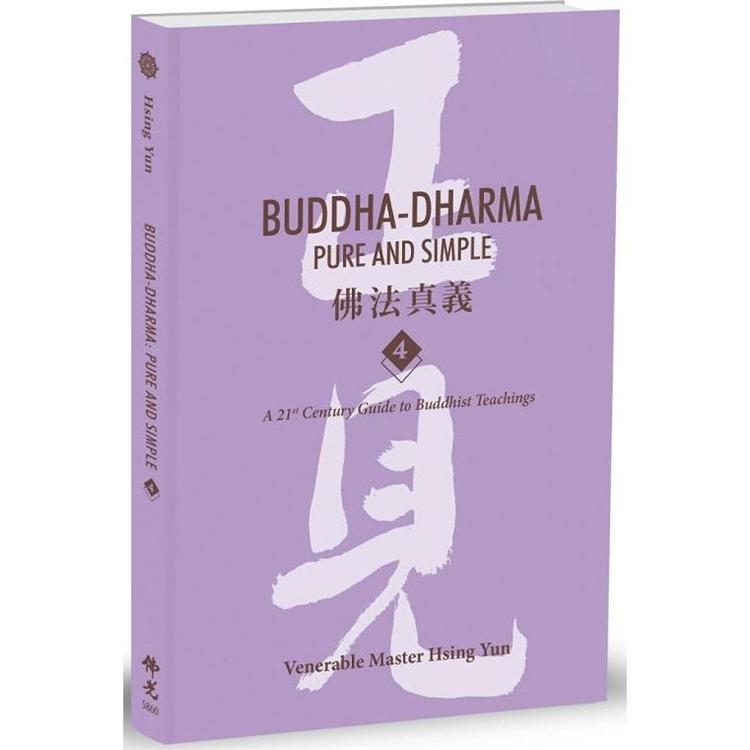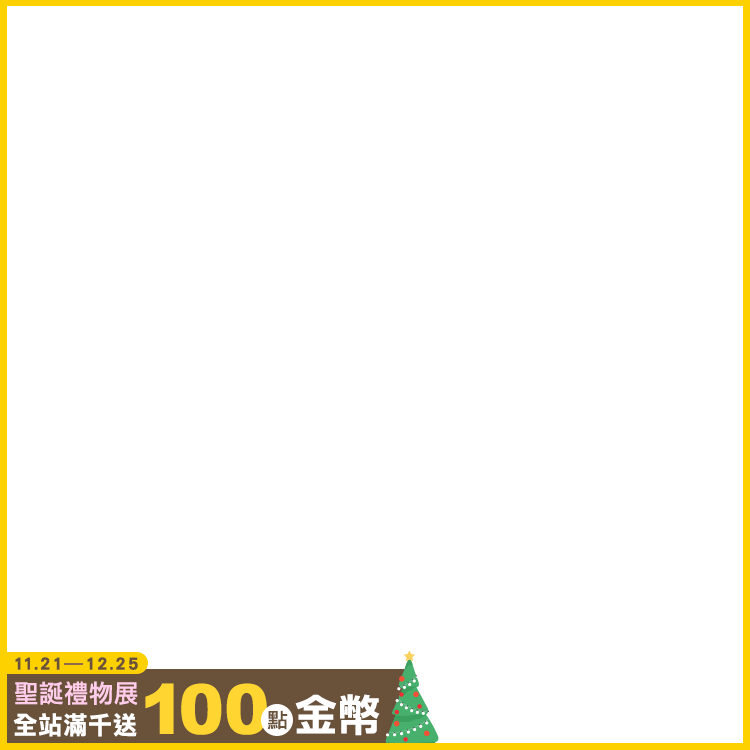Buddha-Dharma: Pure and Simple 4:佛法真義
活動訊息
內容簡介
In today’s Buddhist sphere, numerous claims have been made on what the Buddha has taught. However, were these teachings truly spoken by the Buddha? The Buddha-Dharma: Pure and Simple series is an exploration of over 300 topics, where Venerable Master Hsing Yun clarifies the Buddha’s teachings in a way that is accessible and relevant to modern readers. Erroneous Buddhist views should be corrected, the true meaning of the Buddha must be preserved to hold true to the original intents of the Buddha.
All Buddhist practice begins with right view, for it is the compass that points toward the true path of cultivation. This fourth installment continues laying the groundwork of this foundation by addressing age-old misconceptions. Covering a wide range of social issues from the perspective of the Buddha-Dharma, Venerable Master offers readers a practical but profound approach to Buddhist practice in daily life.
目錄
About Venerable Master Hsing Yun
Translator’s Introduction
Preface
1. Heaven, Earth, Human
2. Oneness and Coexistence
3. The Beauty in Enjoyment
4. A Temple is Like a Gas Station
5. Reciprocal Donation
6. Keeping Money in the Hands of Devotees
7. Recording the History of Devotees
8. Crisis Awareness
9. Half-and-Half
10. Three Parts Guidance, Seven Parts Friendship
11. Ten Sramanera Precepts
12. Eight Garudharmas
13. Relics
14. Eighteen Arhats
15. Kim Gyo-gak
16. Eight Groups of Heavenly Beings
17. Underground Palaces
18. Significance of the Registration Book in Amitabha Sutra
19. Can Plants Become Buddhas?
20. Will Hell Be Emptied?
21. Is it the Age of Declining Dharma When Lay Buddhists Propagate the Dharma?
22. Mahayana Buddhism is Not Spoken By the Buddha
23. Types of Faith
24. People of Different Faiths—Each with Their Own Father
25. Who is the God of Wealth?
26. Recognizing Mazu
27. Legend of the White Snake
28. Dispel What is Wrong and Reveal What is Right
29. To Whom the Chants Are Offered?
30. Profound Discussion and Practical Actions
31. Fortune-Telling Sticks and Dharma Words
32. Buddhism and Politics
33. Environmental and Spiritual Preservation
34. Life-Releasing or Life Ending
35. The Act and the Intention of Killing
36. Prajna and Wisdom
37. Organ Donation
38. Hospice Care
39. Gender Equality
40. The Importance of Equality
41. New Ways of Dharma Propagation
42. Do What is in Accordance with the Buddha
43. Global Citizen
44. Each and Every Buddha Walks on the Same Path
序/導讀
Translator’s Introduction
“Dharma can only be found in the world, and awakening cannot be attained away from it.” The teachings of the Buddha are closely entwined with human life. They are the compass that guides us on the path of cultivation. There are four approaches in reading this installment: in relation to other people, other Buddhists, nature, and society.
In relation to other people
Every sentient being is dependent on and connected to another. It is impossible to exist on one’s own without the help of others. As a result, it is the wish of Venerable Master Hsing Yun that we can widen our hearts to accept everyone and everything in this world. In this way, life becomes limitless.
In relation to other Buddhists
In the long history of Buddhism, age-old misconceptions have been passed down from one generation to another without being questioned. Many articles are aimed towards practicing Buddhists, including monastics, in order to increase awareness about erroneous thinking and attitudes. Because some themes presented may be culture-specific, there are notes at the end of the book that provide additional clarification.
In relation to nature
Environmental issues are currently one of humanity’s most important concerns. Because our thoughts serve as the basis for the world we live in, Buddhists prioritize spiritual preservation in addition to collaborative efforts in environmental protection. When the mind is equipped with wholesome qualities, our actions are naturally considerate, leading to the purity of our surroundings.
In relation to society
Some of the societal concerns explored in this book include equality, politics, and hospice care. By relying on the Buddha’s personal experiences and teachings, Venerable Master addresses these challenges, giving insight into how the Buddhist tradition can address some of society’s most pressing issues.
Buddhist teachings are not just realized through words and writings; they must also be put into practice in daily life to be fully realized. May this fourth installment serve as a practical guide to discovering wisdom in everyday life.
配送方式
-
台灣
- 國內宅配:本島、離島
-
到店取貨:
不限金額免運費



-
海外
- 國際快遞:全球
-
港澳店取:


訂購/退換貨須知
退換貨須知:
**提醒您,鑑賞期不等於試用期,退回商品須為全新狀態**
-
依據「消費者保護法」第19條及行政院消費者保護處公告之「通訊交易解除權合理例外情事適用準則」,以下商品購買後,除商品本身有瑕疵外,將不提供7天的猶豫期:
- 易於腐敗、保存期限較短或解約時即將逾期。(如:生鮮食品)
- 依消費者要求所為之客製化給付。(客製化商品)
- 報紙、期刊或雜誌。(含MOOK、外文雜誌)
- 經消費者拆封之影音商品或電腦軟體。
- 非以有形媒介提供之數位內容或一經提供即為完成之線上服務,經消費者事先同意始提供。(如:電子書、電子雜誌、下載版軟體、虛擬商品…等)
- 已拆封之個人衛生用品。(如:內衣褲、刮鬍刀、除毛刀…等)
- 若非上列種類商品,均享有到貨7天的猶豫期(含例假日)。
- 辦理退換貨時,商品(組合商品恕無法接受單獨退貨)必須是您收到商品時的原始狀態(包含商品本體、配件、贈品、保證書、所有附隨資料文件及原廠內外包裝…等),請勿直接使用原廠包裝寄送,或於原廠包裝上黏貼紙張或書寫文字。
- 退回商品若無法回復原狀,將請您負擔回復原狀所需費用,嚴重時將影響您的退貨權益。













商品評價